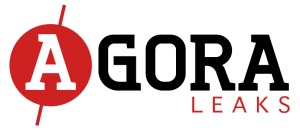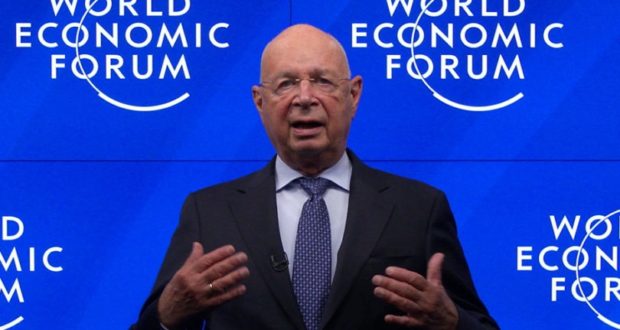بحلول عام 2030 “لن تمتلك شيئًا وستكون سعيدًا”، هي خطة اشتراكية إستبدادية صممتها النخب العالمية..
Jack Bingham – “لتمكين انتقال أوسع من الملكية إلى الاستخدام ، يجب تغيير الطريقة التي نصمم بها الأشياء والأنظمة أيضًا” ، كما تقول المجموعة التي تقف وراء أجندة Great Reset سيئة السمعة.
تماشياً مع هدف جدول أعمال “التغيير العالمي العظيم” المتمثل في ضمان “لا يمتلك الناس شيئًا” ، يدعو المنتدى الاقتصادي العالمي الآن إلى إلغاء ملكية السيارات الخاصة.
افتتحت مقالة المنتدى الاقتصادي العالمي في 18 تموز (يوليو) بعنوان “3 مقاربات للاقتصاد الدائري لتقليل الطلب على المعادن المهمة”: “نحن بحاجة إلى ثورة طاقة نظيفة ، ونحن بحاجة إليها الآن”.
لكن هذا الانتقال من الوقود الأحفوري إلى مصادر الطاقة المتجددة سيحتاج إلى إمدادات كبيرة من المعادن المهمة مثل الكوبالت والليثيوم والنيكل ، على سبيل المثال لا الحصر. يمكن أن يؤدي نقص هذه المعادن الحرجة إلى زيادة تكاليف تقنيات الطاقة النظيفة “، بحسب المجموعة..
ويوضح المنتدى الاقتصادي العالمي أنه في حين أن استخراج المزيد من “المواد البكر” هو أحد “الطرق الواضحة” ، فإن القيام بذلك قد يؤدي إلى “عواقب غير مقصودة” ، وبالتالي “حان الوقت للنظر إلى ما وراء” الحل الحالي والنظر في تغييرات في طريقة التفكير “يمكن أن” تساعد في تقليل الطلب على المعادن المهمة “.
أول تغيير في طريقة التفكير هو تشجيع الأشخاص على “الانتقال من الامتلاك إلى الاستخدام“. يدعي المنتدى الاقتصادي العالمي أنه نظرًا لترك معظم المركبات والعناصر الأخرى في وضع الخمول أكثر من استخدامها ، “يمكن أن يؤدي المزيد من المشاركة إلى تقليل ملكية المعدات الخاملة وبالتالي استخدام المواد”.
توضح المجموعة “لتمكين انتقال أوسع من الملكية إلى الاستخدام ، يجب تغيير الطريقة التي نصمم بها الأشياء والأنظمة أيضًا” ، مشيرة إلى أن أحد الاحتمالات هو أن أشياء مثل السيارات يمكن أن تستخدم “ملفات تعريف المستخدمين” التي “تخلق تمييزًا لـ العمل والاستخدام الشخصي على نفس الجهاز “مما يسمح بتقليل” عدد الأجهزة لكل شخص “.
“تعتبر عملية التصميم التي تركز على تلبية الحاجة الأساسية بدلاً من التصميم لشراء المنتج أمرًا أساسيًا لهذا التحول. هذه هي العقلية اللازمة لإعادة تصميم المدن لتقليل المركبات الخاصة والاستخدامات الأخرى “، تضيف المنظمة.
الفكرتان الأخريان لدى المنتدى الاقتصادي العالمي لما يسمى “الاقتصاد الدائري” أقل ثورية بكثير وتتضمن بناء أشياء مع “تفضيل طول العمر” وإعادة تعيين الأغراض التي لم تعد تخدم الاستخدام المقصود ولكنها يمكن أن تكون مفيدة في بيئة أخرى.
حتى مع ذلك ، في الفقرات الختامية من المقال ، يلمح المنتدى الاقتصادي العالمي إلى رغبته في إزالة الاستقلال الذاتي عن السكان لصالح النهوض بنظرته للعالم ، مشيرًا إلى الكتاب الأبيض للمنتدى الاقتصادي العالمي لعام 2022 الذي يشجع العاملين في صناعة التعدين على طرح السؤال ، “هل نحتاج إلى هذه المعادن؟” قبل الشروع في المشاريع.
“هذا الانتقال إلى نموذج دائري بالكامل أصبح الآن أكثر إلحاحًا من أي وقت مضى. إذا أردنا المضي قدمًا ، فنحن بحاجة إلى إعادة النظر على مستوى نظامي في مقدار ما نستخدمه ، وكذلك كيف يمكننا تقليل الاستخدام “. “ما لم نتمكن من تقليل الاستخدام الحالي للمعادن بشكل كبير ، فإن الجدل والتوتر حول العثور على مناجم جديدة لن يختفي.”
كما ذكرت على نطاق واسع LifeSiteNews ، فإن أجندة WEF الكبرى لإعادة التعيين ، والتي تنص على أنه بحلول عام 2030 “لن تمتلك شيئًا وستكون سعيدًا” ، هي خطة اشتراكية راديكالية صممتها النخب العالمية التي “تسعى إلى” دفع عملية إعادة التعيين زر “الاقتصاد العالمي” وإنشاء نظام عالمي جديد جذري يبدو أنه يحاكي عن كثب العديد من جوانب نظام الائتمان الاجتماعي الصيني.
في الواقع ، أشاد رئيس المنتدى الاقتصادي العالمي كلاوس شواب باستمرار بالرئيس الصيني الشيوعي الحادي عشر جين بينغ لما يسمى بـ “الإنجازات الاجتماعية والاقتصادية الهامة” لبلاده ، بينما أشار إلى أن الصين تتمتع بقوة “الاندماج” في العالم على الرغم من الأدلة الموثوقة على أن نظام جين بينغ تشارك في الإبادة الجماعية ، وحصاد الأعضاء ، وغيرها من الممارسات غير الإنسانية لزيادة قوة ما يسميه النقاد “أول دولة شمولية حقيقية في العالم”.
World Economic Forum calls for abolition of private vehicle ownership
Jack Bingham – ‘To enable a broader transition from ownership to usership, the way we design things and systems need to change too,’ says the group behind the infamous Great Reset agenda.
In line with its “Great Reset” agenda goal of ensuring ordinary people “own nothing,” the World Economic Forum is now advocating for the abolition of private vehicle ownership.
“We need a clean energy revolution, and we need it now,” opens the WEF’s July 18 article titled “3 circular economy approaches to reduce demand for critical metals.
“But this transition from fossil fuels to renewables will need large supplies of critical metals such as cobalt, lithium, nickel, to name a few. Shortages of these critical minerals could raise the costs of clean energy technologies,” continued the globalist group.
Continuing, the WEF explains that while mining more “virgin material” is one “obvious route,” doing so could produce “unintended consequences,” and therefore “it is time to look beyond” the current solution and consider “[t]hese three mindset changes” that can “help reduce demand for critical metals.”
The first of the mindset changes is encouraging people to “Go from owning to using.” The WEF claims that because most vehicles and other items are left sitting idle more than they are used, “More sharing can reduce ownership of idle equipment and thus material usage.”
“To enable a broader transition from ownership to usership, the way we design things and systems need to change too,” explains the group, mentioning that one possibility is that things such as cars could utilize “user profiles” that “create a distinction for work and personal use on the same device” allowing for the “number of devices per person” to be reduced.
“A design process that focuses on fulfilling the underlying need instead of designing for product purchasing is fundamental to this transition. This is the mindset needed to redesign cities to reduce private vehicles and other usages,” adds the organization.
The other two ideas the WEF has for the so-called “circular economy” are far less revolutionary and include building things with a “preference for longevity” and repurposing items that no longer serve their intended use but could be useful in another setting.
Even still, in the concluding paragraphs of the article the WEF hints at its desire to remove autonomy from the population in favor of advancing its own worldview, referencing a 2022 World Economic Forum white paper which encourages those in the mining industry to ask the question, “do we need these minerals?” before embarking on projects.
“This transition to a fully circular model is now more urgent than ever. If we are to move forward, we need to reconsider at a systemic level how much we use, as well as how we can reduce usage,” it states. “Unless we can dramatically reduce current metal usage, the debate and tension on finding new mines will not go away.”
As extensively reported by LifeSiteNews, the WEF’s Great Reset agenda, which says that by the year 2030 “You’ll own nothing and you’ll be happy,” is a radical socialist plan designed by global elites that “seeks to ‘push the reset button’ on the global economy” and establish a radical New World Order that seems to closely emulate many aspects of the Chinese Social Credit System.
In fact, WEF chairman Klaus Schwab has consistently praised Communist Chinese President XI Jinping for his country’s so-called “significant social and economic achievements,” while referring to China has a force of “inclusion” in the world despite credible evidence that Jinping’s regime is engaged in genocide, organ-harvesting, and other inhumane practices to further increase the power of what critics call the “world’s first truly totalitarian state.”
 Agoraleaks Agoraleaks
Agoraleaks Agoraleaks







